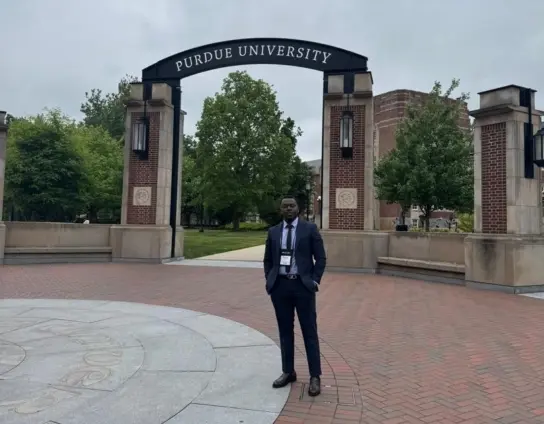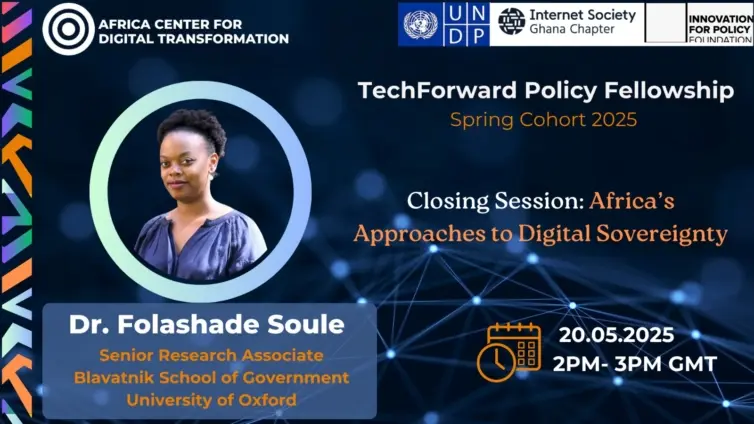Accra, Ghana – Leopold Armah, the Chief Information Officer of Prudential Bank, is championing a critical mission for African technology engineers: the domestication of Artificial Intelligence (AI). Speaking at the CISO Summit 2025 in Accra, Armah emphasized the growing importance of AI, moving from experimental phases to becoming an essential tool across various sectors. He particularly highlighted its potential within threat intelligence and cybersecurity. Armah’s vision calls for developing AI applications uniquely tailored to the linguistic and cultural landscapes of the African continent, ensuring relevance and effectiveness in addressing local challenges. This initiative focuses on nurturing a deeper understanding and utilization of AI to propel Africa’s technological advancement.
The push for domesticating African AI represents a strategic move to customize technology to suit the specific needs and nuances of the continent. Rather than relying on generic AI solutions developed elsewhere, Armah argues that Africa must cultivate its own AI capabilities to address its unique challenges effectively.
For Africa, domesticating AI means ensuring its relevance to local contexts. Tailoring AI to African languages and cultural practices is not merely a matter of convenience; it’s about ensuring usability and effectiveness. Understanding and appreciating the potential of African AI requires a localized approach, one that acknowledges the diverse realities across the continent. Moreover, investing in local AI development fosters expertise and innovation within the African tech community, building a foundation for sustainable technological growth. According to Armah, this approach is crucial for developing countries to fully leverage the power of AI.
“It is critical therefore for developing countries to initiate steps toward domesticating the tool. This will facilitate better appreciation and project the potential of the tool,” – Leopold Armah, CIO, Prudential Bank
Simplifying AI and directing investment towards it is crucial for Africa. This involves creating user-friendly AI tools and interfaces that are accessible to a wider audience. Resource allocation to AI education, research, and development initiatives within Africa is equally important. Programs designed to train individuals and organizations in AI-related skills will help achieve capacity building to ensure African AI is well supported.
AI and automation are poised to transform threat intelligence by offering unparalleled speed, efficiency, and consistency. Unlike manual interventions, AI-driven systems can respond to threats in real-time, minimizing potential damage. Automation streamlines repetitive tasks such as patch management and log analysis, freeing up human resources to focus on more strategic initiatives. Moreover, AI ensures consistent responses, reducing the likelihood of human error and improving overall security posture.
One of the key benefits of AI in threat intelligence is its ability to correlate tactics, techniques, and procedures (TTPs). By analyzing vast amounts of data, AI algorithms can quickly identify patterns and connections, enabling quicker identification of threat actors and their methods. Furthermore, AI can simulate attack scenarios to enhance threat preparedness, allowing organizations to proactively address vulnerabilities and strengthen their defenses. This advanced correlation enables a more robust and responsive cybersecurity framework. An example would be using AI to identify phishing attempts targeting specific industries or regions in Africa, allowing for rapid deployment of countermeasures.
However, it’s crucial to acknowledge the potential drawbacks of AI and automation. AI systems are not always perfect and can be prone to errors, especially when trained on biased or incomplete data. Addressing the ethical implications of AI, including issues of bias and fairness, is paramount. Governing rules, ethical guidelines, and legal frameworks are essential for ensuring responsible AI development and deployment.
Prioritizing the understanding and addressing of ethical implications in AI development is critical, as is the initiation of legal frameworks to govern the use of AI and data. Balancing the benefits of speed and innovation with safety and ethical considerations is key to harnessing the power of African AI responsibly.
“As we dive headfirst into this uncharted territory, we need to keep our eyes wide open. It is not just about the potential benefits and drawbacks, but also about how AI is going to continue to mold and reshape the workplace in ways we might not even imagine.” – Leopold Armah, CIO, Prudential Bank
Referencing futurist Ray Kurzweil, Armah dispels fears that AI and automation pose a serious threat to job security. Instead, he envisions AI as a thought partner, not a replacement, emphasizing the importance of collaboration between humans and machines. Nurturing and working alongside machines and technology is seen as crucial for solving complex problems and driving innovation. This collaborative approach is critical in ensuring that technology augments human capabilities rather than diminishing them.
This collaborative approach means that African AI can be used to amplify human capabilities, leading to more innovative solutions.
“‘Our technology, our machines are part of our humanity. We create them to extend ourselves and that is what is unique about human beings.’ – Ray Kurzweil, futurist.”
Leopold Armah’s advocacy for domesticating AI in Africa highlights the importance of tailoring technology to local contexts, this is also the core of African AI. By simplifying AI, investing in local talent, and prioritizing ethical considerations, Africa can harness the power of AI for threat intelligence, cybersecurity, and broader societal advancement. As AI continues to evolve, collaboration between humans and machines will be key to unlocking its full potential and ensuring a future where technology serves as a thought partner, not a replacement.
Image Source: MYJOYONLINE

















